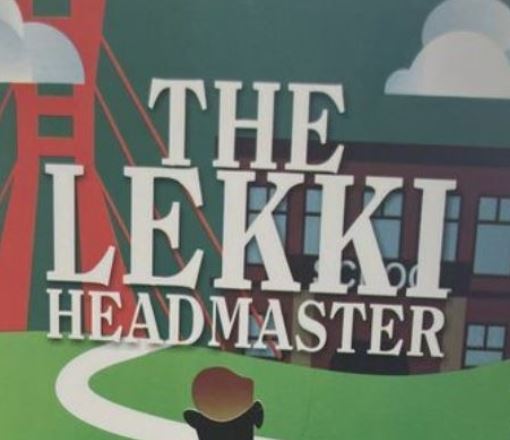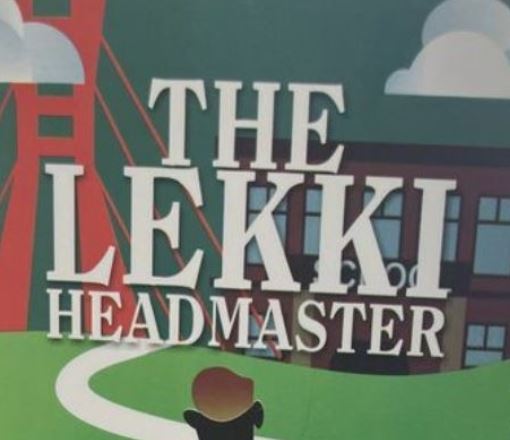Read and download the complete JAMB novel for 2025, Lekki Headmaster Chapter 8 by Kabir Alabi Garba. The book is available in PDF and in hard copy.
To get the hard copy of the book, visit a JAMB CBT center and get a copy of it after registration. The PDF format is available online on our website, iuschools.com.
Because we care about the 2025/2026 UTME candidates, we have taken our time to provide you with the free text format of this book chapter by chapter. All you need to do is to read and it and get used to it.
Note that the JAMB novel is compulsory for all Unified Tertiary Matriculation Examination (UTME) students. Up to 10 questions may be set from this book during exam.
Scroll down to download the PDF for this chapter.
Lekki Headmaster Chapter 8
Missions Unaccomplished
A Legal tussle between the families of two of his pupils stood out among matters Bepo would leave unresolved as he stepped out of the country. He L wished the matter did not linger. What began as a child’s play had lasted three years It seemed like a joke stretched too far; an unbelievable bitterness left to fester. publicly.
The school had launched the process of choosing a new set of prefects. As usual, it would be elective. The Stardom management believed it was important to introduce the learners to the democratic culture as early as possible. Even at the primary section, the emergence of class representatives was democratic. Pupils were encouraged to indicate interest and go through the process from start to finish. They bought forms at costs that depended on the offices they were vying for. Intent forms for the positions of Head Boy and Head Girl were sold for N50,000; their deputies, N40,000; and N25,000 for all other offices that included Chapel Prefect, Health Prefect, Social Prefect, Labour Prefect and Punctuality Prefect.
After purchasing the forms, the aspirants would be screened by a panel constituted by the management. The panel comprised both academic and non-academic staff as well as two observers drawn from the school’s alumni association.
At the screening stage, Stardom sought to ensure each intending prefect was above average academically. He or she must also have a good moral history, especially in school. The aspirant must have been in the school for up to two sessions and was not expected to owe fees. The debt-free condition was golden, as far as the management was concerned. For this, Mrs. Ibidun Gloss had a witty saying: “If you want a debtor to lead fee payers, ask a tenant to lead the landlord.” It needed no explanation.
On the day the aspirants faced the five-man panel, each was expected to read out his or her Expression of Interest letter and speak to it in about three minutes. It was a way of gauging their power of communication. Once the screening hurdle was scaled, the list of candidates would be read at the assembly. This would enable the voters to know them and also raise any objections, via letters, to the panel, which, in turn, ensured it protected the identity of any petitioner. The list would be posted on the school’s main notice board for two weeks, after which the candidates would address the students at the much-anticipated Speech Day. The election was held the following day.
Stardom Schools was sure it was following a cool process. But something happened which terribly hurt the arrangement that year and eventually got the democratic tradition suspended. On Speech Day, Banky, an 55S 2 student contesting the post of Social Prefect, became so emotional that he employed arguably a vulgar language on his key opponent, Tosh, also in 555 2. At a point, in his presentation, Banky said: “Instead of voting for the son of an ex- convict, cast your vote for me. You will never regret.”
The students cheered as he concluded the presentation, until the principal rose from the table where he sat with members of the officiating panel. He was disappointed at Banky’s choice of words: calling the father of a fellow student an ex-convict. Before Bepo could talk sense into the contestant, Tosh had stood up from his seat and began stomping out of the hall. Three teachers rushed to pacify him and bring him back, but he was resolved, resisting violently as he hasted away.
“Banky, why would you call the father of your fellow student an ex-convict? That is
morally bad,” the principal reprimanded.
While a child may have all the strength to cut a tree in a forest, it’s the elderly that can tell the direction the tree would fall. The managing director of Stardom Schools found this adage most apt. Besides the fact that protest greeted Tosh’s exit-his fans calling for outright cancellation of the speech-making event until he was brought back— the rivalry between him and Banky predated the programme. It ran deeper than what played out because it involved parents of the duo.
When they -Banky and Toss- were in JSS 3, they clashed in the Best Dancer category at the end-of-year party. Both were finalists in the hip-hop category and competed fiercely for victory. So outstanding were their performances that the audience was sharply divided on who carried the day. The judges also were stunned.
Eventually, they crowned Banky on a 3-2 vote. But Tosh’s mum, who was in the crowd (like Banky’s mother too), felt slighted and complained bitterly against the decision. She and her husband later wrote an official letter, protesting that their son was robbed of victory.
The parents even threatened a lawsuit and swore they would withdraw Tosh and his younger brother. Months after, the mothers again clashed during the PTA election, where Banky’s mum beat the latter to become the treasurer. Perhaps, what escalated the rivalry was the fact that the fathers of both boys were politicians and belonged to either of the two leading and belligerent political parties – Progressives All Congress and Democratic People’s Party.
Tosh’s father, Chief Didi Ogba, was not an ex-convict. Although years back, he spent 36 months in detention, facing trial for alleged misappropriation of a N2.5 billion government contract sum. The trial dragged for five years. But he was later released while his company was ordered to refund the sum. The court ruled that he was not directly guilty of the offence.
The school initiated peace moves but Chief Ogba, also a top lawyer, insisted Banky and his parents write separate letters of apology to him and Tosh. He also insisted the letters be published conspicuously in the school magazine. Banky’s parents, however, rejected the ultimatum. First, they requested the video of their son’s alleged offensive speech, which their lawyer studied and came up with the conclusion that Banky never mentioned the name ‘Ogba’. Besides, they affirmed that Chief Ogba’s demand amounted to victimisation of their son.
Bepo was close to both families and hoped he would be able to pacify the aggrieved parties. But his moves were futile. Now, as he planned to relocate, the legal action instituted by Ogba was nearing conclusion. He believed there was still room for an out-of-court settlement, having persuaded the management to explore alternative dispute resolution.
Bepo was also upset that he would miss the Invention Club. He was particularly worried about the fate that would befall the five- year-old Breath Project — the club’s phone-making initiative, using recycled panels and chips. He was an active patron of the club, despite the fact that he was not a scientist. Bepo always argued that invention was not necessarily limited by discipline. The project had attracted media and government interest, with the school and an NGO, called Life Grid, committing funds to its development. Bepo anticipated the day his students would conclude research and production, so that the school would announce to the world that it had manufactured a phone. He feared that if he left Nigeria, the project could derail. But if it cruised to completion, Bepo swore he would do everything possible to fly in from London and be part of the launch.
END OF CHAPTER EIGHT


